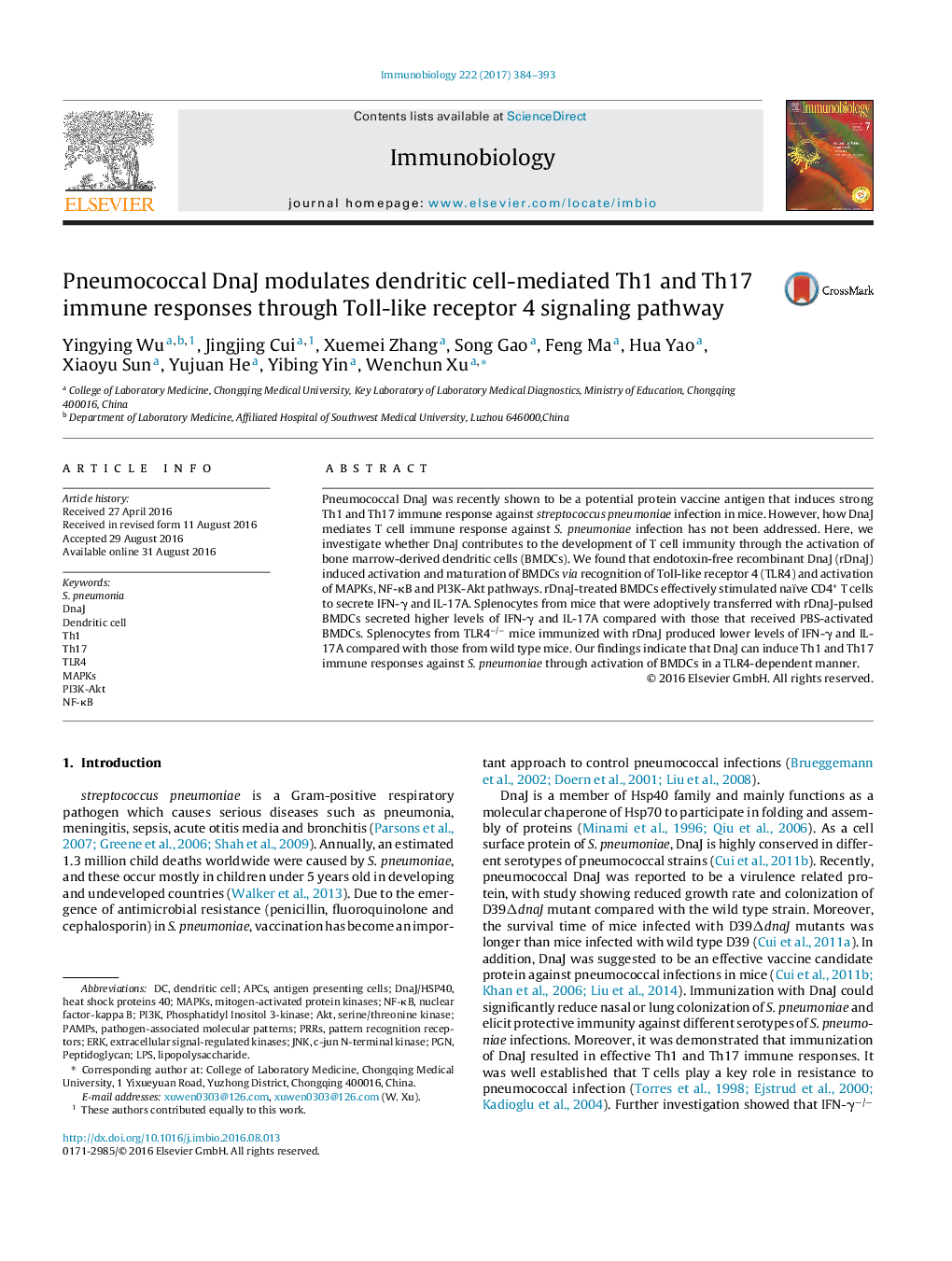| Article ID | Journal | Published Year | Pages | File Type |
|---|---|---|---|---|
| 5532679 | Immunobiology | 2017 | 10 Pages |
â¢The first time to investigate the interaction of Pneumococcal DnaJ and innate immunity.â¢TLR4 were involved in DnaJ-induced BMDCs activation and maturation.â¢DnaJ activate BMDCs through MAPKs, NF-κB and PI3K-AKT pathways.â¢This research contributes to the future development of DnaJ-based pneumococcal protein vaccines.
Pneumococcal DnaJ was recently shown to be a potential protein vaccine antigen that induces strong Th1 and Th17 immune response against streptococcus pneumoniae infection in mice. However, how DnaJ mediates T cell immune response against S. pneumoniae infection has not been addressed. Here, we investigate whether DnaJ contributes to the development of T cell immunity through the activation of bone marrow-derived dendritic cells (BMDCs). We found that endotoxin-free recombinant DnaJ (rDnaJ) induced activation and maturation of BMDCs via recognition of Toll-like receptor 4 (TLR4) and activation of MAPKs, NF-κB and PI3K-Akt pathways. rDnaJ-treated BMDCs effectively stimulated naïve CD4+ T cells to secrete IFN-γ and IL-17A. Splenocytes from mice that were adoptively transferred with rDnaJ-pulsed BMDCs secreted higher levels of IFN-γ and IL-17A compared with those that received PBS-activated BMDCs. Splenocytes from TLR4â/â mice immunized with rDnaJ produced lower levels of IFN-γ and IL-17A compared with those from wild type mice. Our findings indicate that DnaJ can induce Th1 and Th17 immune responses against S. pneumoniae through activation of BMDCs in a TLR4-dependent manner.
